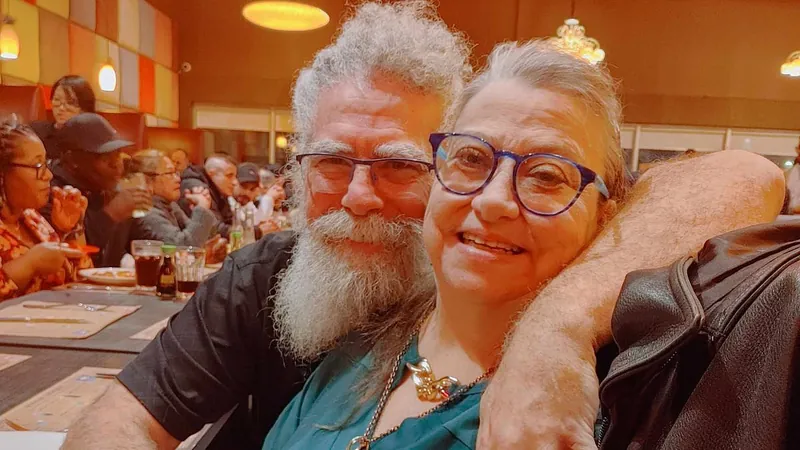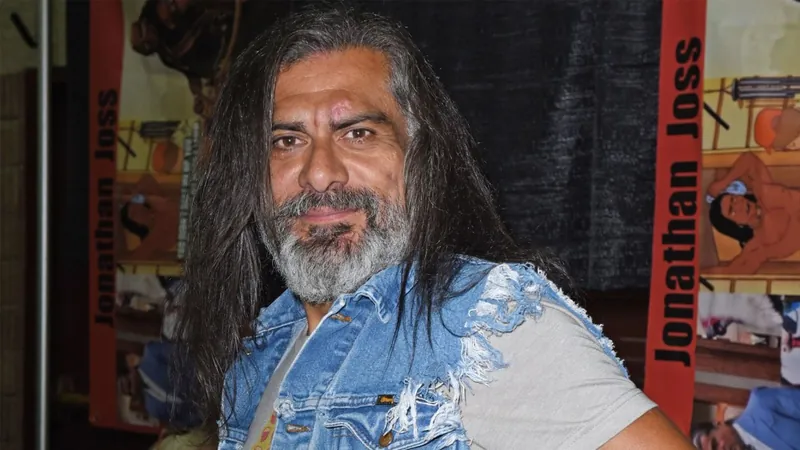
Heart Transplants: Are Recipients Really Inheriting Memories and Personality Traits from Donors?
2025-01-23
Author: Jessica Wong
In an astonishing revelation, organ transplant recipients are reporting dramatic changes in their emotions and preferences following surgery, leading some researchers to believe that they may be inheriting traits and memories from their donors.
Take, for instance, Anne Marie Switzer, a Canadian who waited a staggering 50 years for a heart transplant. Born with a rare heart defect that required her to undergo surgery just two days after birth, Anne finally received her donor heart in 2016. However, within months of the operation, she noticed that her emotional responses were starkly different. The once familiar warmth and affection she felt towards her husband and friends had vanished, leaving her perplexed and concerned. “I love my husband, but I don’t always get that 'twitterpated' feeling anymore,” she lamented during a 2022 interview with CBC Radio.
Switzer’s experience aligns with a growing body of research suggesting that organ recipients may indeed experience personality changes or even adopt the likes and dislikes of their donors. One study published in 2022 revealed that nearly 90% of surveyed organ recipients experienced some form of personality alteration after their surgery. Not all changes are benign; they can range from subtle shifts in preference to alarming fears or behaviors that appear to stem from the donors’ experiences or personalities.
The phenomenon isn’t confined to just emotional changes. Claire Sylvia, a heart-lung transplant recipient, reported newfound cravings for beer and Kentucky Fried Chicken—foods she had never hungered for before her surgery. This startling story raises questions about how deeply interconnected our bodies—and perhaps even our memories—truly are.
Research into how memories and traits might be transferred through organ transplantation is still in its early stages. Some scientists propose that the heart’s neural networks could play a significant role in this exchange, suggesting a possible connection between the heart and the brain that challenges long-held beliefs about where memories reside. According to a 2024 review published in the journal *Cureus*, evidence is emerging that supports the notion of a "cellular memory," where cells could theoretically store experiences like neurons in the brain.
Even more gripping accounts exist, such as that of a nine-year-old boy who received a heart from a girl who drowned. After his surgery, he exhibited an intense fear of water he could not explain, despite having loved swimming prior to the transplant. Similarly, a five-year-old recipient who received the heart of another young boy became afraid of Power Rangers after experiencing vivid dreams connected to his donor's tragic accident.
Despite these intriguing narratives, skepticism remains. Critics argue that the changes reported may be coincidental or psychologically driven responses to the trauma of surgery and life-altering health issues. McGill University researchers hint that powerful medications required by organ recipients might also influence their emotional and psychological responses, altering appetites and none other than general personality traits.
Mrs. Switzer herself, who also recently received a kidney transplant, acknowledged the complexity of the science surrounding these issues. “Only those who have undergone organ transplants can truly speak to the reality of these experiences,” she stated, emphasizing the subjective nature of such profound changes.
While these stories all point to an extraordinary connection between organ donors and recipients, the scientific community is just beginning to unravel the mysteries of this complex relationship. As more studies are conducted, one thing is clear: the heart's role might extend far beyond just pumping blood. Are we on the verge of a breakthrough in understanding how our bodies, memories, and emotions intertwine? Only time will tell.

 Brasil (PT)
Brasil (PT)
 Canada (EN)
Canada (EN)
 Chile (ES)
Chile (ES)
 Česko (CS)
Česko (CS)
 대한민국 (KO)
대한민국 (KO)
 España (ES)
España (ES)
 France (FR)
France (FR)
 Hong Kong (EN)
Hong Kong (EN)
 Italia (IT)
Italia (IT)
 日本 (JA)
日本 (JA)
 Magyarország (HU)
Magyarország (HU)
 Norge (NO)
Norge (NO)
 Polska (PL)
Polska (PL)
 Schweiz (DE)
Schweiz (DE)
 Singapore (EN)
Singapore (EN)
 Sverige (SV)
Sverige (SV)
 Suomi (FI)
Suomi (FI)
 Türkiye (TR)
Türkiye (TR)
 الإمارات العربية المتحدة (AR)
الإمارات العربية المتحدة (AR)